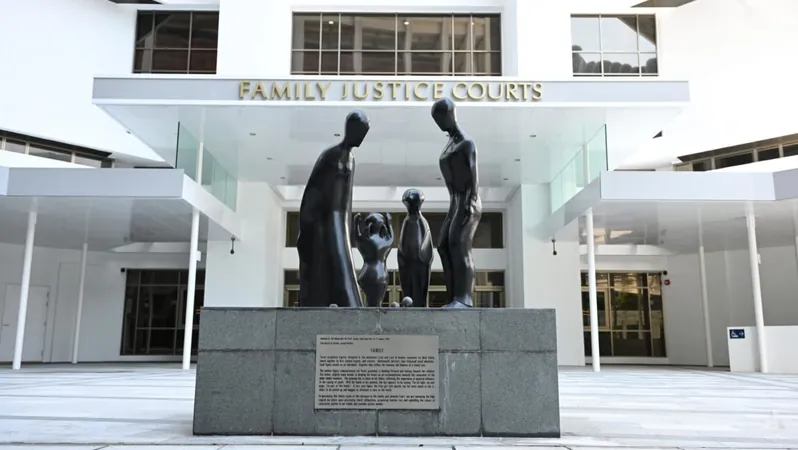
Revolutionary Tool Predicts Infection Risks from Oral Mucositis in Stem Cell Transplant Patients
2025-09-08
Author: Daniel
Innovative Research Highlights Infection Risks
Researchers at the University at Buffalo have unveiled groundbreaking findings on oral mucositis, a painful condition that can severely impact stem cell transplant patients. Their studies reveal that those undergoing hematopoietic stem cell transplants (HSCT) for blood cancers face a staggering fourfold increase in severe infection risks if they develop oral mucositis, a first in quantifying this hazard.
Understanding the Risks of Oral Mucositis
Published in the journal "Cancers," this research meticulously explores key risk factors for oral mucositis, which occurs in up to 80% of HSCT patients. Factors include specific medications like methotrexate, high-dose chemotherapy, female gender, younger age, kidney issues, and even the reactivation of the herpes simplex virus.
Oral Mucositis: A Gateway to Infections
"Oral mucositis is not just a painful annoyance; it acts as a critical entry point for infections in patients with weakened immune systems," explains Dr. Satheeshkumar Poolakkad Sankaran, lead author and research scientist at the Jacobs School of Medicine. He emphasizes the dire outcomes for patients suffering from this condition, advocating for preemptive screenings to identify at-risk individuals.
Preventive Measures for Improved Outcomes
Early identification of high-risk patients allows healthcare providers to implement preventive strategies, including enhanced oral hygiene and innovative treatments like cryotherapy to alleviate inflammation—ultimately boosting patients' quality of life.
Introducing a Predictive Nomogram Tool
To further enhance risk assessment, Sankaran and his team published a tool called a nomogram in July, designed to predict potential oral mucositis cases by analyzing factors like age, gender, race, and treatment history. "This tool simplifies complex data, giving clinicians actionable insights for targeted care," remarks Dr. Joel Epstein from the City of Hope Comprehensive Cancer Center.
Harnessing Explainable AI for Enhanced Predictions
At a recent international conference, Sankaran revealed an exciting advancement utilizing explainable AI. This model surpasses conventional nomograms by harnessing machine learning to uncover hidden patterns linked to toxicities that traditional methods might overlook. This approach promises to tailor therapies more effectively, reducing adverse events in cancer treatment.
Towards a Collaborative Future in Cancer Care
Sankaran is collaborating on validating this model across a broader spectrum of cancer-related adverse events, aiming for widespread clinical use. He underscores the necessity of teamwork among oncologists, dentists, and AI experts to optimize cancer treatment outcomes as therapies like HSCT evolve.
The Promise of Advanced Tools in Cancer Management
As cancer therapies become increasingly intricate, particularly for older patients, these innovative tools hold the potential to minimize complications, shorten hospital stays, and lower healthcare costs—ushering in a new era of personalized cancer care.



 Brasil (PT)
Brasil (PT)
 Canada (EN)
Canada (EN)
 Chile (ES)
Chile (ES)
 Česko (CS)
Česko (CS)
 대한민국 (KO)
대한민국 (KO)
 España (ES)
España (ES)
 France (FR)
France (FR)
 Hong Kong (EN)
Hong Kong (EN)
 Italia (IT)
Italia (IT)
 日本 (JA)
日本 (JA)
 Magyarország (HU)
Magyarország (HU)
 Norge (NO)
Norge (NO)
 Polska (PL)
Polska (PL)
 Schweiz (DE)
Schweiz (DE)
 Singapore (EN)
Singapore (EN)
 Sverige (SV)
Sverige (SV)
 Suomi (FI)
Suomi (FI)
 Türkiye (TR)
Türkiye (TR)
 الإمارات العربية المتحدة (AR)
الإمارات العربية المتحدة (AR)